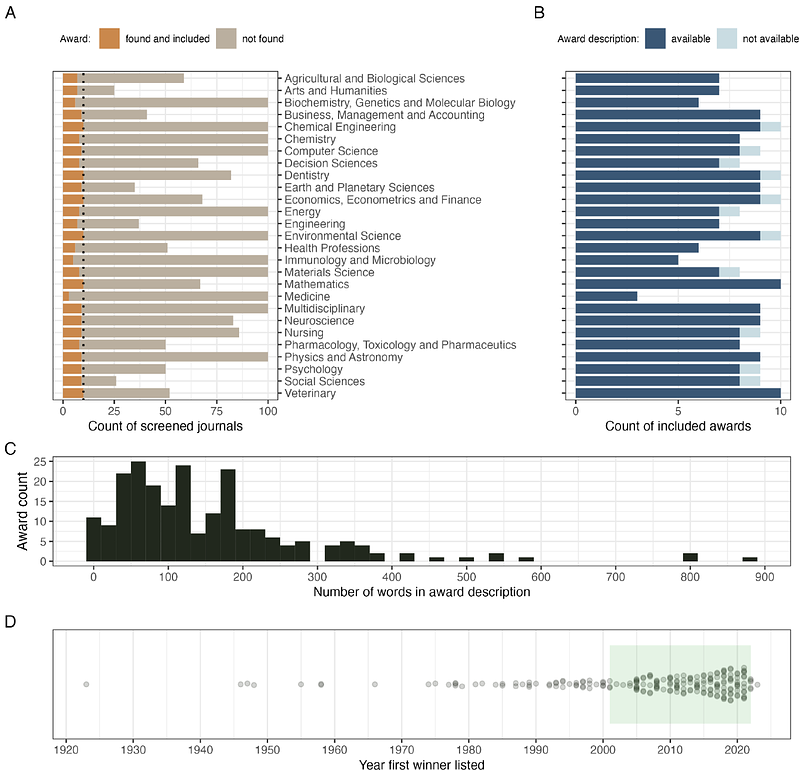Best Paper awards lack transparency, inclusivity, and support for Open Science

Best Paper awards lack transparency, inclusivity, and support for Open Science
Lagisz, M.; Rutkowska, J.; Aich, U.; Ross, R. M.; Santana, M. S.; Wang, J.; Trubanova, N.; Page, M. J.; Pua, A. A. Y.; Yang, Y.; Amin, B.; Martinig, A. R.; Barnett, A.; Surendran, A.; Zhang, J.; Borg, D. N.; Elisee, J.; Wrightson, J. G.; Nakagawa, S.
AbstractAwards can propel academic careers. They also reflect the culture and values of the scientific community. But, do awards incentivise greater transparency, diversity, and openness in science? Our cross-disciplinary survey of 222 awards for the \"best\" journal articles across all 27 SCImago subject areas revealed that journals and learned societies administering such awards generally publish little detail on their procedures and criteria. Award descriptions are brief, rarely including contact details or information on the nominations pool. Nominations of underrepresented groups are not explicitly encouraged and concepts that align with Open Science are almost absent from the assessment criteria. Instead, such awards increasingly rely on article level impact metrics. USA-affiliated researchers dominated the winner\'s pool (48%), while researchers from the Global South and developing countries were uncommon (11%). Sixty-one percent of individual winners were men. Thus, Best Paper awards miss the global calls for greater transparency and equitable access to academic recognition.


